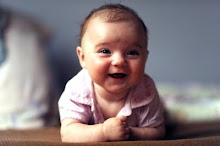 Salammbo
Salammbo is an epic historical tale revolving around the Mercenary War that Carthage fought around 240 BC. As a novel it's both vague and highly detailed, sublime and totally boring and leaves me with a huge sense of ennui.
The thing I noticed most is the detailed descriptions of the city of Carthage and the war machine that is trying to destroy it. The descriptions range from the beautiful, I can see ancient Carthage sitting at the side of the sea covered in moonlight, to the obscene, I see also in my mind's eye the effect of war on bodies and animals. Epic descriptions seems to be more important than individual characterisation or the pacing of the plot. But what I missed was a feeling of time, the whole novel feels timeless, weightless and vague. Yet it clearly is not. It is set at an actual historical period with historical figures, ie. the actual generals of the armies.
I do wonder how the readers of the novel in the 19th century felt about the honestly gratuitous violence, particularly the woman reader of that time. Was she shocked? Horrified? Disgusted? Because the descriptions that Flaubert wrote are just that. They also seem somewhat aloof, the wretched lives and deaths of humans and animals seem distant and quite separate from the reader. In fact, I think that's why the novel leads me to feel so bored with it, despite its horror, I just don't care about the characters. I don't care who wins the war. I feel overwhelmed by the pointless brutal deaths and lives to the point where I just feel blase about it.
Both the rich and happy are now as equally dead as the poor and suffering, one day we will be so as well. All that effort for a war that is just barely remembered, just as today's wars will become in time. More corpses, more sacrifices, but nothing essential is changed by it.
It's novel written for style and effect, with genuine substance, but it leaves me feeling dry and hopeless about the human condition. There's no redemption here, just ancient corpses on show.












